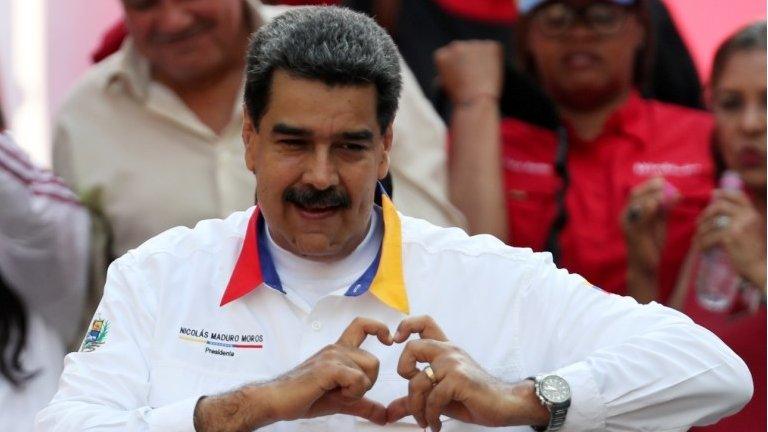Freed Venezuela lawmaker Edgar Zambrano: The regime kidnapped me
- Published
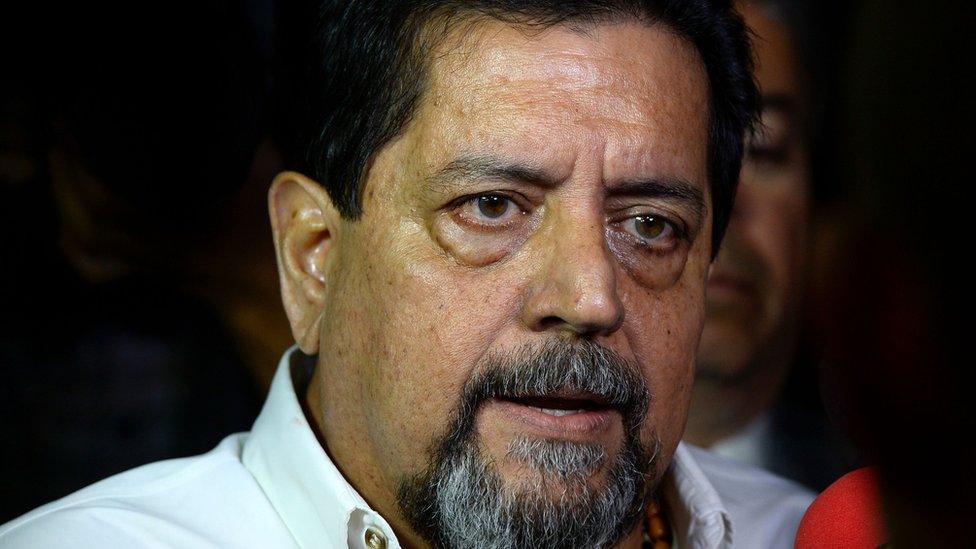
Edgar Zambrano was held in detention for four months on charges of treason
Edgar Zambrano, the deputy of Venezuelan opposition leader Juan Guaidó, has lashed out at the government of President Nicolás Maduro as he was released from detention.
Mr Zambrano was arrested in May on suspicion of treason shortly after a failed uprising against President Maduro organised by Mr Guaidó.
He said his detention amounted to a "kidnapping".
The government said he was released to further "peaceful coexistence".
Who is Edgar Zambrano?
The 64-year-old lawyer is a member of the National Assembly, Venezuela's opposition-controlled parliament, for the Democratic Action party.
Since January, he has been the deputy of National Assembly leader, Juan Guaidó.
Mr Guaidó declared himself interim president in January, arguing that the 2018 re-election of President Maduro was fraudulent. He has been recognised by more than 50 countries as Venezuela's legitimate leader.
Mr Zambrano was one of Mr Guaidó's key aides as the latter tried to oust President Maduro from power.
Why was he detained?
Mr Zambrano was arrested shortly after Mr Guaidó tried to get the military to switch sides and support him rather than President Maduro.
On 30 April, Mr Guaidó appeared at an air force base in the capital, Caracas, surrounded by about 30 men in uniform calling on people to take to the streets to end "the usurpation of power" by President Maduro.
Edgar Zambrano could be seen in footage recorded a few hours later alongside Mr Guaidó on a bridge near the base as it became clear that the attempted uprising had failed to garner the necessary support to succeed. That footage led to Mr Zambrano being accused of treason.
Eight days after the failed uprising, members of Venezuela's secret service intercepted the lawmaker as he was leaving his party's headquarters in his car.
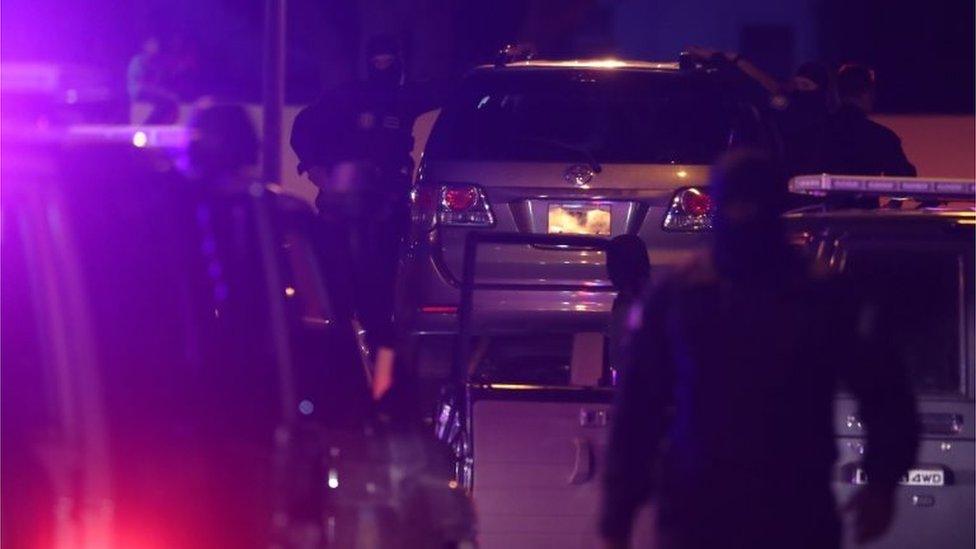
Mr Zambrano's car was towed by Sebin agents with him inside
They ordered him to get out of the vehicle and when he refused, he was towed to prison while still inside the car.
Why has he been freed?
Attorney-General Tarek William Saab said a petition for his release had been granted following "partial agreements reached by the government and parts of the opposition in order to foster citizens' peaceful co-existence".
Mr Saab did not say if the treason charges against Mr Zambrano had been dropped. His statement also said that Mr Zambrano would still be facing "other precautionary measures" instead of detention, although he did not make clear what those were.
What did Mr Zambrano say?
Mr Zambrano spoke to journalists as soon as he was released and was scathing in his criticism of what he said was his completely illegal detention.
"I do not suffer from Stockholm syndrome," he said referring to the condition which causes hostages to feel sympathy with their captors.
"I will not thank my kidnappers nor any pseudo-opposition for my release," he said referring to Mr Saab's explanation that talks with parts of the opposition had led to his freeing.
"I did not commit any crime, I was kidnapped and almost annihilated by this regime solely for thinking differently."
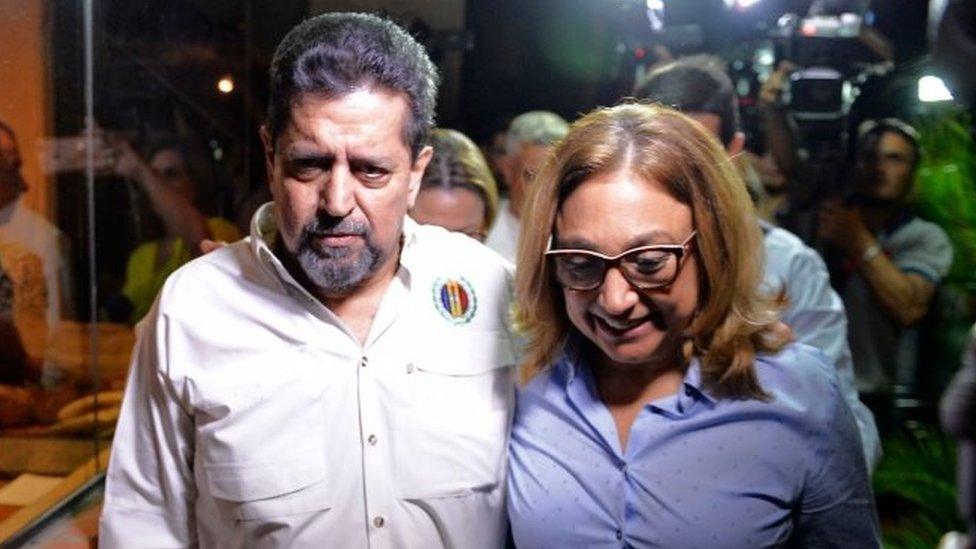
Mr Zambrano says that he was not allowed to see his wife for his first 33 days in detention
He described how he was not allowed to see his wife until his 34th day in captivity and how he did not have any access to his lawyers for more than two months.
He called for the release of "all political prisoners". According to pressure group Foro Penal, there are 478 political prisoners in Venezuela.
Mr Zambrano also said he would meet Juan Guaidó later on Wednesday and soon retake his seat in the National Assembly.
What other reaction has there been?
Mr Guaidó said that Mr Zambrano's release was due to public and international pressure, including a report by UN Human Rights Commissioner Michelle Bachelet, external, put on the government to release the political prisoners it is holding. "It's not a 'kindness' shown by the dictatorship," he said.
One of the four opposition lawmakers taking part in dialogue with the government was more positive about Mr Zambrano's release.
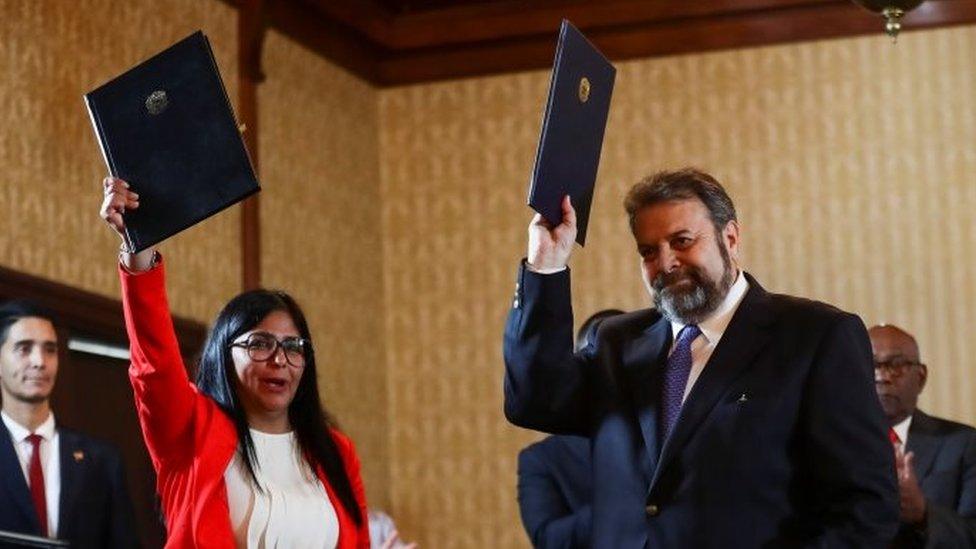
Timoteo Zambrano (right) is one of the four lawmakers who signed an agreement with the government
Timoteo Zambrano, who is no relation of Edgar Zambrano, tweeted: "The process of freeing political prisoners has begun. We celebrate the freedom of our colleague, the deputy Edgar Zambrano."
Who is taking part in the talks?
The talks which Attorney-General Saab says led to the release of Mr Zambrano are highly controversial. Only four little-known lawmakers signed an agreement to enter into the negotiations with the government on Monday.
The move was seen by larger and more influential parties as an attempt to divide the opposition.
It came a day after Mr Guaidó had announced that Norwegian-mediated talks between his representatives and the government had been exhausted.
The government broadcast the signing of the "deal" live on television in what critics say was a "show" orchestrated for the international community.
Opposition news site Caraota Digital reported that European Union diplomats who had been invited to the event without being told what it was about walked out in protest.

You may be interested in:
Listen to Juan Guaidó speak about his plans for Venezuela
- Published9 May 2019
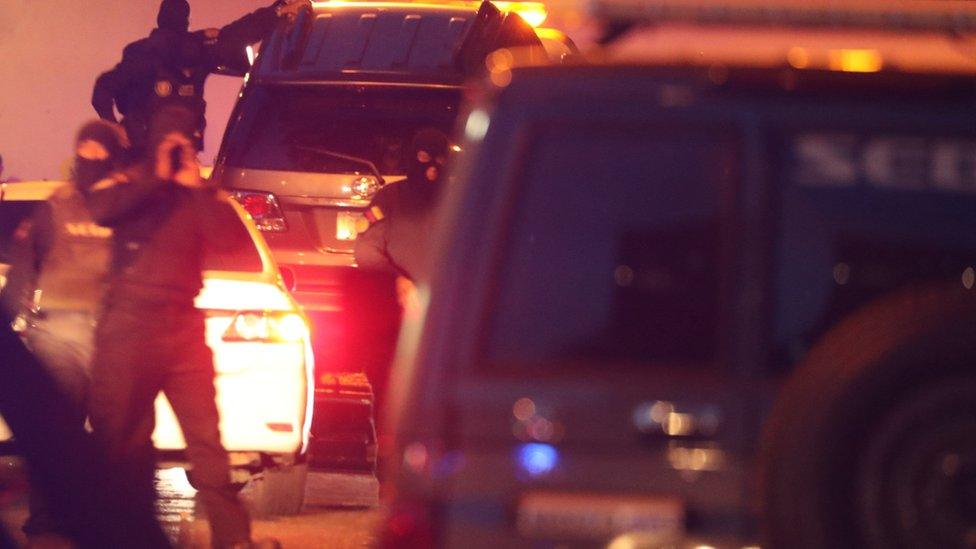
- Published21 August 2019
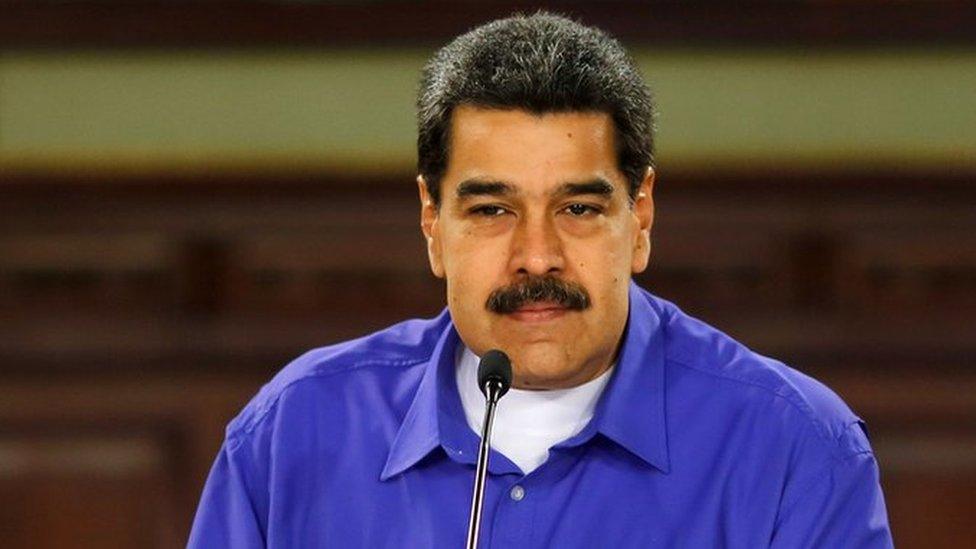
- Published6 August 2019
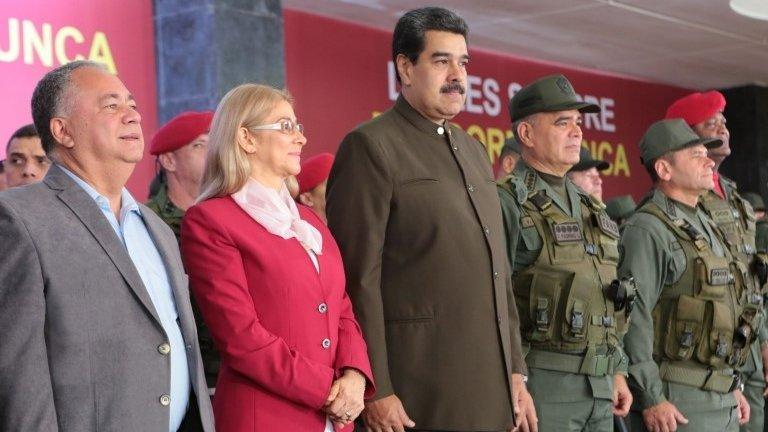
- Published9 July 2019
